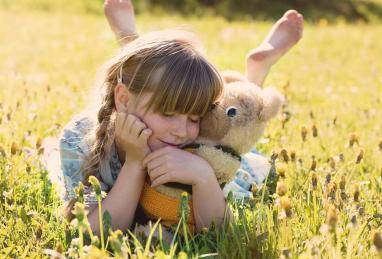Although you may think that depression can affect only adults, still this is only a myth, it can easily harm your children, it has its first and significant drawback: kids don’t understand what happen to them and as a result don’t ask for help.
So, there are something that you need to understand about childhood depression, to be able to spot its signs and help your kids.
Because children don’t express their emotions so brightly as adults, hardly they will come and say something like this : “I am depressed”. Living in a world, that is controlled by adults, a child can’t understand some vital things that happening in him and around him, very often they feel powerless over the things that happen to them.
This fact put the responsibility upon you as an adult to help a kid cope with his problems.
There are four categories of depression signs in children: emotional signs, cognitive signs, physical complaints and changes in behaviour.
EMOTIONAL SIGNS OF DEPRESSION IN CHILDREN
Here are some most typical mood changes in the kid, who experiences depression:
sadness, the child feels hopeless and may cry, then hide his tears by feeling withdrawn;
lost of interest, children may complain that they are bored by those things that made them happy, for
example sport, some games;
anxiety, the child may become anxious, find out what is the source of this to understand what causes depression;
anger, this is a result of the distress the child is feeling, children may feel worried and irritable.
COGNITIVE SIGNS OF DEPRESSION IN CHILDREN
These are in most cases:
negative view on most things, on their life and everything that around;
the difficulty in organizing the thoughts, in children this is usually problems in school and problems with completing the task;
the feeling of guilty, which makes think children they are worthless, they percived their failures and faults;
hopelessness, children think that there is no way out, there is nothing that can relieve their depression.
PHYSICAL SIGNS OF DEPRESSION IN CHILDREN
The most typical are such signs as:
changes in appetite and weight, a depressed child who usually had a good appetite may lose the interest in eating or eating too much as if it is a self-treatment;
problems with sleep, children may sleep too much or very less, also have problems with staying awake during the day at school;
being slower, usually depressed children talk, walk and do else things slower, they are less active than usually.
CHANGES IN THE BEHAVIOUR
activities in excess, he or she may spend very much time on doing something, for example playing video games;
restlessness, which is usually reckless activity or acting up in a class;
self-harm, thus a child may take excessive risk or cause physical pain.
WAYS TO HELP YOUR CHILD TO COPE WITH DEPRESSION
1. Talk to your child, say him or her that depression is not something he/she should be ashamed of, that everyone has a situation when he/she is sad.
2. Give the right to your child to stay depressed, thus he/she will understand that it is normal and will not hide the feelings.
3. You must give your child a time to grieve, even upon small problems and situation.
4. Watch the symptoms of the depression, if they become severe, maybe it is a time to seek professional help.
5. Explain your child that it is an Ok thing to ask for help, show the people whom he/she may talk to.
6. Watch yourself, your child looks at you and learn how to cope with problems.
Don\'t be afraid if something like this will happen to you, don\'t hesitate but do something, thesse advices are good advices, follow them to cope together with your child with such a thing as depression.






